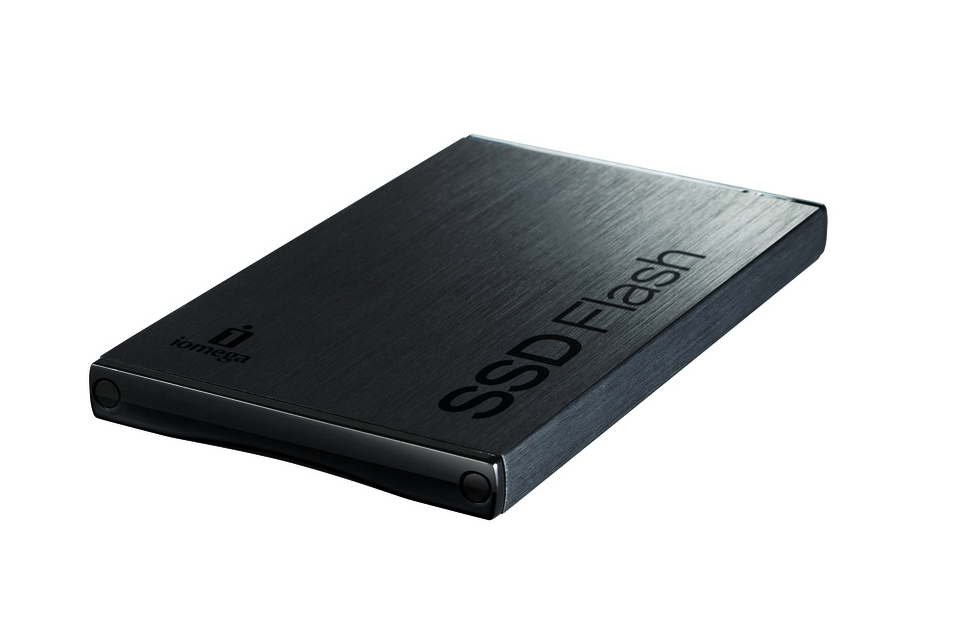Iomega SSD Flash External Drive 64GB review
An SSD with a USB3 connection. What could possibly go wrong? Quite a lot as our review reveals.

The Iomega SSD Flash 64GB is slim and attractive, thanks to its black brushed metal enclosure. Unfortunately its performance is far slower than what we'd expect from both a USB3-equipped storage device and from a SSD. If you must have a USB3-equipped SSD and can live without the warranty, you're better off buying a USB3 enclosure and a SSD separately and fitting them yourself, but we'd still wait until SSD prices are a little more sensible.
Solid state disks (SSDs) have one crucial advantage over traditional hard disks. Since they don't have any moving parts, they're considerably less prone to damage. This has led to SSDs being fitted in laptops, usually high-end models given their high cost. Nonetheless, their ruggedness, as well as their slenderness, makes them attractive for use in external storage too.
The Iomega SSD Flash is not only one of the first external SSDs we've seen, it's also the first we've seen to come equipped with a USB3 port. In our tests with portable hard disks, we've found that the USB3 models can be four times as fast as their USB2 counterparts, so we were eager to test the file transfer speeds of Iomega's SSD Flash.
Unfortunately, we found the SSD Flash's speed results to be inconsistent. When connected to a PC with a built-in USB3 port, large files were written at 62.8MB/s and read at 154MB/s. Small files were written at 31MB/s and read at 44.8MB/s. Although these speeds are faster than any USB2 hard disk, they're generally much slower than the best USB3 hard disks and SSDs connected internally using the SATA interface which can easily exceed 100MB/s in all our tests.
Get the ITPro daily newsletter
Sign up today and you will receive a free copy of our Future Focus 2025 report - the leading guidance on AI, cybersecurity and other IT challenges as per 700+ senior executives
-
 CyberOne appoints Microsoft’s Tracey Pretorius to its advisory board
CyberOne appoints Microsoft’s Tracey Pretorius to its advisory boardNews The threat intelligence leader will provide strategic guidance to CyberOne’s executive team
By Daniel Todd Published
-
 CISA issues warning in wake of Oracle cloud credentials leak
CISA issues warning in wake of Oracle cloud credentials leakNews The security agency has published guidance for enterprises at risk
By Ross Kelly Published
-
 Reports: White House mulling DeepSeek ban amid investigation
Reports: White House mulling DeepSeek ban amid investigationNews Nvidia is caught up in US-China AI battle, but Huang still visits DeepSeek in Beijing
By Nicole Kobie Published